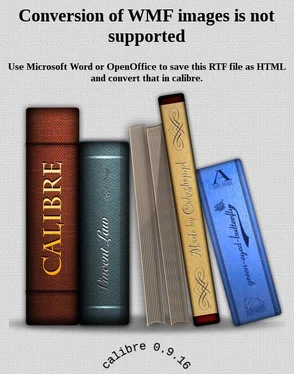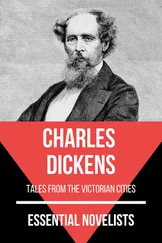Charles Dickens - Speeches - Literary & Social
Здесь есть возможность читать онлайн «Charles Dickens - Speeches - Literary & Social» весь текст электронной книги совершенно бесплатно (целиком полную версию без сокращений). В некоторых случаях можно слушать аудио, скачать через торрент в формате fb2 и присутствует краткое содержание. Жанр: Классическая проза, на английском языке. Описание произведения, (предисловие) а так же отзывы посетителей доступны на портале библиотеки ЛибКат.
- Название:Speeches: Literary & Social
- Автор:
- Жанр:
- Год:неизвестен
- ISBN:нет данных
- Рейтинг книги:5 / 5. Голосов: 1
-
Избранное:Добавить в избранное
- Отзывы:
-
Ваша оценка:
- 100
- 1
- 2
- 3
- 4
- 5
Speeches: Literary & Social: краткое содержание, описание и аннотация
Предлагаем к чтению аннотацию, описание, краткое содержание или предисловие (зависит от того, что написал сам автор книги «Speeches: Literary & Social»). Если вы не нашли необходимую информацию о книге — напишите в комментариях, мы постараемся отыскать её.
Speeches: Literary & Social — читать онлайн бесплатно полную книгу (весь текст) целиком
Ниже представлен текст книги, разбитый по страницам. Система сохранения места последней прочитанной страницы, позволяет с удобством читать онлайн бесплатно книгу «Speeches: Literary & Social», без необходимости каждый раз заново искать на чём Вы остановились. Поставьте закладку, и сможете в любой момент перейти на страницу, на которой закончили чтение.
Интервал:
Закладка:
Ladies and gentlemen, the resolution entrusted to me is:
"That the Report of the provisional committee be adopted, and that this meeting joyfully accepts, and gratefully acknowledges, the gift of five acres of land referred to in the said Report."
It is manifest, I take it, that we are all agreed upon this acceptance and acknowledgment, and that we all know very well that this generous gift can inspire but one sentiment in the breast of every lover of the dramatic art. As it is far too often forgotten by those who are indebted to it for many a restorative flight out of this working-day world, that the silks, and velvets, and elegant costumes of its professors must be every night exchanged for the hideous coats and waistcoats of the present day, in which we have now the honour and the misfortune of appearing before you, so when we do meet with a nature so considerably generous as this donor's, and do find an interest in the real life and struggles of the people who have delighted it, so very spontaneous and so very liberal, we have nothing to do but to accept and to admire, we have no duty left but to "take the goods the gods provide us," and to make the best and the most of them. Ladies and gentlemen, allow me to remark, that in this mode of turning a good gift to the highest account, lies the truest gratitude.
In reference to this, I could not but reflect, whilst Mr. Kean was speaking, that in an hour or two from this time, the spot upon which we are now assembled will be transformed into the scene of a crafty and a cruel bond. I know that, a few hours hence, the Grand Canal of Venice will flow, with picturesque fidelity, on the very spot where I now stand dryshod, and that "the quality of mercy" will be beautifully stated to the Venetian Council by a learned young doctor from Padua, on these very boards on which we now enlarge upon the quality of charity and sympathy. Knowing this, it came into my mind to consider how different the real bond of to-day from the ideal bond of to-night. Now, all generosity, all forbearance, all forgetfulness of little jealousies and unworthy divisions, all united action for the general good. Then, all selfishness, all malignity, all cruelty, all revenge, and all evil, - now all good. Then, a bond to be broken within the compass of a few - three or four - swiftly passing hours, - now, a bond to be valid and of good effect generations hence.
Ladies and gentlemen, of the execution and delivery of this bond, between this generous gentleman on the one hand, and the united members of a too often and too long disunited art upon the other, be you the witnesses. Do you attest of everything that is liberal and free in spirit, that is "so nominated in the bond;" and of everything that is grudging, self-seeking, unjust, or unfair, that it is by no sophistry ever to be found there. I beg to move the resolution which I have already had the pleasure of reading.
SPEECH XXIII
Manchester, December 3, 1858
The following speech was delivered at the annual meeting of the Institutional Association of Lancashire and Cheshire, held in the Free-trade Hall on the evening of the above day, at which Mr. Dickens presided.
IT has of late years become noticeable in England that the autumn season produces an immense amount of public speaking. I notice that no sooner do the leaves begin to fall from the trees, than pearls of great price begin to fall from the lips of the wise men of the east, and north, and west, and south; and anybody may have them by the bushel, for the picking up. Now, whether the comet has this year had a quickening influence on this crop, as it is by some supposed to have had upon the corn-harvest and the vintage, I do not know; but I do know that I have never observed the columns of the newspapers to groan so heavily under a pressure of orations, each vying with the other in the two qualities of having little or nothing to do with the matter in hand, and of being always addressed to any audience in the wide world rather than the audience to which it was delivered.
The autumn having gone, and the winter come, I am so sanguine as to hope that we in our proceedings may break through this enchanted circle and deviate from this precedent; the rather as we have something real to do, and are come together, I am sure, in all plain fellowship and straightforwardness, to do it. We have no little straws of our own to throw up to show us which way any wind blows, and we have no oblique biddings of our own to make for anything outside this hall.
At the top of the public announcement of this meeting are the words, "Institutional Association of Lancashire and Cheshire." Will you allow me, in reference to the meaning of those words, to present myself before you as the embodied spirit of ignorance recently enlightened, and to put myself through a short, voluntary examination as to the results of my studies. To begin with: the title did not suggest to me anything in the least like the truth. I have been for some years pretty familiar with the terms, "Mechanics' Institutions," and "Literary Societies," but they have, unfortunately, become too often associated in my mind with a body of great pretensions, lame as to some important member or other, which generally inhabits a new house much too large for it, which is seldom paid for, and which takes the name of the mechanics most grievously in vain, for I have usually seen a mechanic and a dodo in that place together.
I, therefore, began my education, in respect of the meaning of this title, very coldly indeed, saying to myself, "Here's the old story." But the perusal of a very few lines of my book soon gave me to understand that it was not by any means the old story; in short, that this association is expressly designed to correct the old story, and to prevent its defects from becoming perpetuated. I learnt that this Institutional Association is the union, in one central head, of one hundred and fourteen local Mechanics' Institutions and Mutual Improvement Societies, at an expense of no more than five shillings to each society; suggesting to all how they can best communicate with and profit by the fountain-head and one another; keeping their best aims steadily before them; advising them how those aims can be best attained; giving a direct end and object to what might otherwise easily become waste forces; and sending among them not only oral teachers, but, better still, boxes of excellent books, called "Free Itinerating Libraries." I learned that these books are constantly making the circuit of hundreds upon hundreds of miles, and are constantly being read with inexpressible relish by thousands upon thousands of toiling people, but that they are never damaged or defaced by one rude hand. These and other like facts lead me to consider the immense importance of the fact, that no little cluster of working men's cottages can arise in any Lancashire or Cheshire valley, at the foot of any running stream which enterprise hunts out for water-power, but it has its educational friend and companion ready for it, willing for it, acquainted with its thoughts and ways and turns of speech even before it has come into existence.
Now, ladies and gentlemen, this is the main consideration that has brought me here. No central association at a distance could possibly do for those working men what this local association does. No central association at a distance could possibly understand them as this local association does. No central association at a distance could possibly put them in that familiar and easy communication one with another, as that I, man or boy, eager for knowledge, in that valley seven miles off, should know of you, man or boy, eager for knowledge, in that valley twelve miles off, and should occasionally trudge to meet you, that you may impart your learning in one branch of acquisition to me, whilst I impart mine in another to you. Yet this is distinctly a feature, and a most important feature, of this society.
Читать дальшеИнтервал:
Закладка:
Похожие книги на «Speeches: Literary & Social»
Представляем Вашему вниманию похожие книги на «Speeches: Literary & Social» списком для выбора. Мы отобрали схожую по названию и смыслу литературу в надежде предоставить читателям больше вариантов отыскать новые, интересные, ещё непрочитанные произведения.
Обсуждение, отзывы о книге «Speeches: Literary & Social» и просто собственные мнения читателей. Оставьте ваши комментарии, напишите, что Вы думаете о произведении, его смысле или главных героях. Укажите что конкретно понравилось, а что нет, и почему Вы так считаете.












